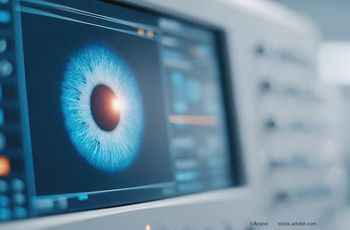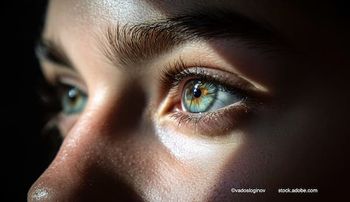
Accommodating IOL provides full range of vision
San Francisco-The Synchrony Dual Optic Accommodating IOL(Visiogen) provides good functional vision, that is, a full rangeof visual acuity, in the patients who have had the lens implanted,according to Ivan Ossma-Gomez, MD, who reported on the lens'performance at the American Society of Cataract and RefractiveSurgery annual meeting.
San Francisco-The Synchrony Dual Optic Accommodating IOL (Visiogen) provides good functional vision, that is, a full range of visual acuity, in the patients who have had the lens implanted, according to Ivan Ossma-Gomez, MD, who reported on the lens' performance at the American Society of Cataract and Refractive Surgery annual meeting.
"There are many alternatives for the reversal of presbyopia. Monovision is useful in some patients, but is limited in others and can hinder stereopsis," Dr. Ossma-Gomez said. "Multifocal and bifocal IOLs have limitations in the range of vision resulting from their lens design and they are pupil-size dependent; they also have associated visual phenomena. Previous studies have shown that accommodating amplitudes with monocular implantation of the Synchrony Dual Optic Accommodating IOL are 2.75 D."
He and his colleagues conducted a study in which the IOL was implanted bilaterally, and they assessed the range and quality of the near, intermediate, and distance vision in patients undergoing cataract removal. The second lens was implanted up to 60 days after the first. The patients were followed for up to 21 months, he explained. Dr. Ossma-Gomez is assistant professor of ophthalmology, Department of Ophthalmology, Instituto para Niños Ciegos y Sordos, Cali, Colombia.
"Use of the injector dramatically reduces the surgically induced astigmatism and eases the implantation of the IOL. The injector also allows for a very controlled delivery of the dual-optic IOL into the capsular bag," he stated.
Dr. Ossma-Gomez reported that the uncorrected binocular visual function 6 months after lens implantation was 20/25 and J1 or better for all three distance tasks in 50% of the patients. All patients had J3 or better vision for intermediate and near vision. When the correction was for distance vision, all had 20/40 and J3 or better with a good range of intermediate and near vision.
Seven patients had accrued more than 18 months of follow-up and in these the IOL was as stable as in the patients followed for a shorter time.
"The clinical appearance of these patients after 18 months of follow-up indicates that their capsules have had no reaction to the materials from which the IOL is made," he said.
The movement of the anterior optic has been measured as patients move from a near to distance target, and it moves about 0.9 mm, which is roughly equivalent to 2.8 D of accommodation.
Dr. Ossma-Gomez explained that the preliminary data indicate that the IOL provides very good range of vision, which is similar to data published by other investigators. He noted, however, that power calculation algorithms have to evolve to provide good uncorrected distance visual acuity. He also emphasized that the introduction of the injector is minimizing the amount of astigmatism that develops as the result of the surgery.
"The true efficacy of the design has been proven by the effect of the IOL once the distance vision is corrected; all patients then maintain good near, intermediate, and distance vision. The stability of the IOL might be the result of the fact that the IOL has elements in the design that make it 'capsule friendly,' in that the lens completely fills the capsule. The posterior capsular opacification scores with the Synchrony IOL are similar to those of the hydrophobic acrylic IOL," he stated.
"The full range of vision is important for everyday activities in patients undergoing presbyopic reversal surgery. Bilateral implantation of the Synchrony Dual Optic Accommodating IOL moves us one step closer to achieving this goal," he concluded.
Newsletter
Don’t miss out—get Ophthalmology Times updates on the latest clinical advancements and expert interviews, straight to your inbox.





























